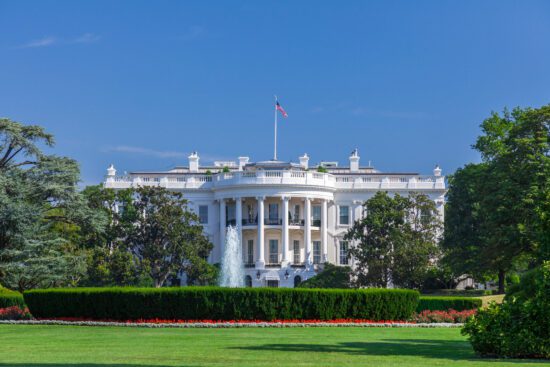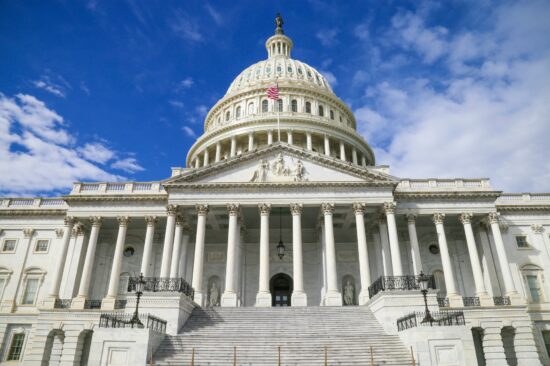The Ethics & Religious Liberty Commission (ERLC) affirms the full dignity of every human being. At the 2018 Annual Meeting of the Southern Baptist Convention, the Messengers passed a resolution to “reaffirm the sacredness and full dignity and worthiness of respect and Christian love for every single human being, without any reservation.” The SBC’s commitment to love of neighbor is grounded in the truth that “God created man in His own image; He created Him in the image of God; He created them male and female.” (Gen. 1:26–27) This is true regardless of what any person believes about God, about humanity, and about our sexuality.
The ERLC believes Fairness For All (FFA) does not strike an effective, durable, and politically feasible balance of public policy regarding God-given conscience rights and the demands of the Sexual Revolution. However, the ERLC does not doubt the motivations or intentions of the supporters of Fairness For All, many of whom are friends and allies on a range of other issues. While the stated intention of the legislation is to protect both those who identify as LGBT and people of faith, we believe the protections for people of faith are insufficient and that the legislation will use the federal government to impose a new orthodoxy on matters of sexuality and gender on the entire country through the Civil Rights Act.
To that point, Rep. Chris Stewart (R–Utah), the author of FFA, in a recent op-ed described the religious liberty protections in the bill as “narrowly-defined carveouts for religious citizens and institutions.” We are deeply concerned that the author of the bill thinks of the protections for religious citizens and institutions in this way.
As Russell Moore, president of the ERLC, often notes, “A government that can pave over the consciences of some can steamroll over dissent everywhere.” The ERLC believes this legislation would diminish foundational individual freedoms and dramatically expand the government’s power to create, enforce, and teach a radical perspective on gender and sexuality. The bill fails in many key respects to protect the consciences of a range of professionals, individuals, and others in a variety of circumstances.
It is true that the application of the Religious Freedom Restoration Act is preserved in the Fairness For All Act of 2019 and that the bill contains a number of other protections for communities of faith. We support this policy and several of the individual provisions within the bill. But even still, these proposed changes to the Civil Rights Act of 1964 would bring a significant shift in civil rights law, religious liberty, and the foundations of civic pluralism.
While the bill contains clear and direct protections for individuals who identify as LGBT, many of the religious freedom protections identified by the bill’s proponents are vague and indirect. The ERLC believes this imbalance leaves many key issues up for interpretation by the judiciary, leaving the final outcomes of the bill unknown. In other cases, we are concerned the lack of clarity would chill expression and prevent individuals from standing on the conscience and religious freedom rights that would be created by the bill. Indeed, part of the core disagreement about Fairness For All is the question of what the bill actually accomplishes.
The ERLC has significant concerns with the Fairness For All Act of 2019. The following outlines a number of areas that are particularly troublesome:
- Faith-based child welfare providers would be inadequately protected by the bill. The bill would introduce a complex new structure for funding foster care and adoption across the United States. It is unclear whether state welfare agencies broadly support such a change, and it is also unclear whether this new funding model is sound policy for the foster care system as a whole. Further, because these provisions lack clear and direct protections for faith-based child welfare providers, the protections may not be as effective or durable as FFA proponents have argued.
- Parents of children who express questions about their sexuality may have their parental decisions challenged by courts and child protection agencies. The bill includes a requirement for foster parents to provide gender reassignment therapy for foster children experiencing gender dysphoria. The bill contains no provision that would limit the application of this standard for foster parents to biological parents as well.
- Medical professionals and providers who serve everyone would be required to administer gender reassignment treatments if they provide the same underlying treatments for other conditions. That is, if a physician performs hysterectomies for cancer patients or hormone therapy for patients with hormone imbalances, she must administer those same treatments for patients seeking gender reassignments. The bill would provide no conscience protections for physicians, clinics, or hospitals in those circumstances.
- Religiously affiliated schools that accept relevant federal funding (e.g., students who use the school lunch program), will no longer be able to maintain sex-segregated spaces and programs including locker rooms, bathrooms, athletics, and housing without obtaining permission from the government after an assessment of whether the school is “substantially religious” and whether their the school’s practices are “religious standards” enforced with “reasonable consistency.” Under Fairness for All, Title VI of the Civil Rights Act would supersede any Education Amendments.
- Religiously affiliated employers that do not fit the narrow exemptions delineated in the bill would be prohibited from hiring according to their mission statements and beliefs, undermining the ability of the employer to fulfill and pursue its mission. Such organizations would be required to hire people who do not live in accordance to their mission statements and to cover gender transitions with their healthcare benefits.
- All Americans would be impacted by the requirements of this bill. The bill would change the nature of intimate and private spaces throughout the country, impose federal requirements for pronoun use in many circumstances, and use federal civil rights law to teach a new ideology of gender and sexuality of which many Americans disagree.
Again, many of the proponents of Fairness For All are friends of the ERLC and allies on a host of issues, and that is still the case. We look forward to working together on many areas of common concern in the years ahead just as in the years past. We do not question the motives of those who disagree with us on this bill. But we do not believe this bill would adequately and effectively protect people of faith and promote the common good.









